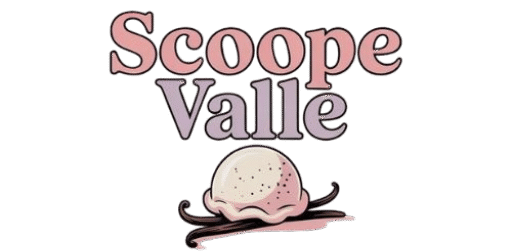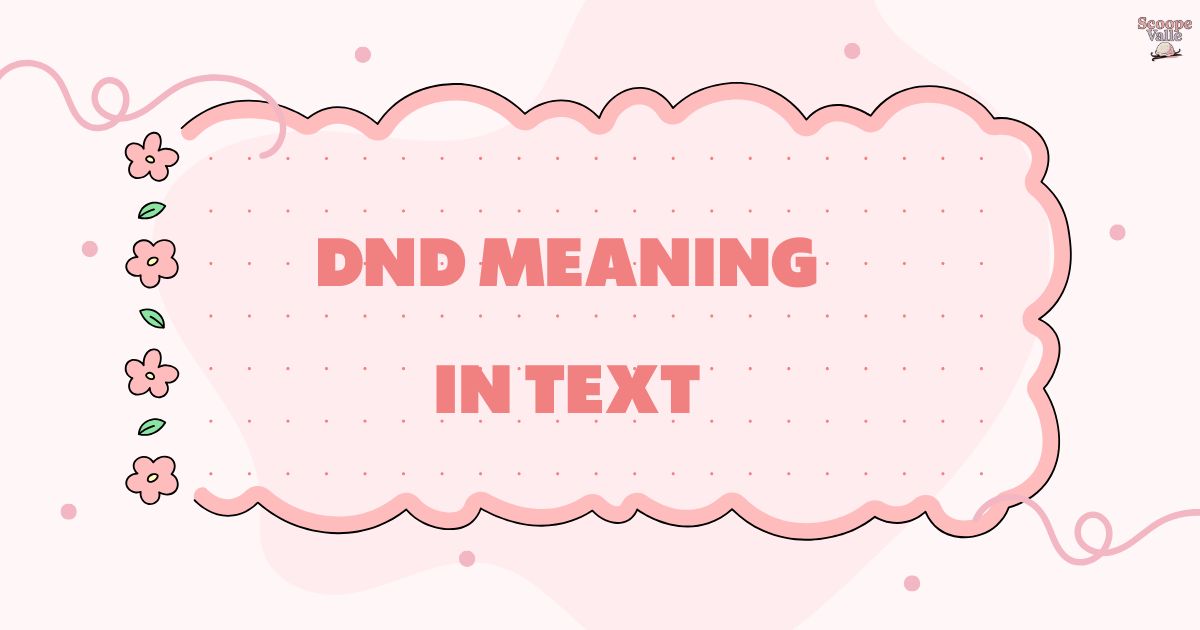In today’s fast-moving digital world, short forms, abbreviations, and acronyms have become a normal part of how we communicate. They help us save time, express emotions quickly, and keep messages short and clear. One popular acronym you may have seen is DND. Whether you’re texting a friend, chatting online, or even working in a professional setting, DND shows up everywhere.
But what does DND really mean? How do you use it properly? And why is it so popular in 2025? This guide will explain everything in simple words, so you can understand DND completely and use it confidently in different situations.
Definition & Meaning
The most common meaning of DND is “Do Not Disturb.” This simple phrase tells people that you don’t want to be interrupted or you’re not available to talk at the moment.
For example:
- “I’m studying for my exams. DND for the next two hours.”
- “Hey, I’m in a meeting. DND until 4 PM.”
On smartphones, DND is also a feature that silences notifications, calls, and alerts. Turning on this mode gives you quiet time without distractions.
However, DND can also mean something completely different in gaming communities. In the world of role-playing games, DND is short for Dungeons & Dragons, a famous tabletop game enjoyed by millions of players worldwide.
Key tip: Always check the context. In most daily chats, DND means Do Not Disturb, but if someone is talking about games or fantasy adventures, it might mean Dungeons & Dragons.
Also read: MIA Meaning in Text: The Ultimate Guide (With Memes & Examples)
Background & History
The phrase “Do Not Disturb” has been around for a long time. In hotels, people used door signs with these words to keep staff from knocking. When mobile technology started growing in the late 1990s and early 2000s, people began shortening long phrases for faster texting. That’s when DND became a popular abbreviation.
When smartphones arrived, companies like Apple and Android introduced DND modes, allowing users to block calls and notifications. This made the acronym even more common in daily life.
Meanwhile, Dungeons & Dragons (D&D) has existed since the 1970s. Players began using DND as a quick way to mention the game in online forums, especially when character limits were strict. By 2025, both meanings—Do Not Disturb and Dungeons & Dragons are widely understood across the world.
Usage in Various Contexts
The beauty of DND is that it fits many situations. People use it in texts, social media posts, gaming chats, and even professional settings. Here’s a closer look.
Texting & Social Media
In personal conversations, DND is a polite way to set boundaries. It tells others you’re busy or need space.
Example:
- Friend: “Can we talk now?”
- You: “Not right now, DND. Finishing a project.”
On platforms like Twitter, Instagram, or WhatsApp, people may post #DND to show they’re taking a break from social media.
Gaming
For gamers, DND often means Dungeons & Dragons. It’s a fantasy role-playing game where players create characters and go on imaginary adventures.
Example:
- Player 1: “What’s your plan this weekend?”
- Player 2: “Hosting a DND night with my friends!”
Professional Settings
At work, DND is commonly used in office chat tools, emails, or even on desk signs. It politely informs colleagues that you’re focused and don’t want interruptions.
Example:
- Colleague: “Can I call you now?”
- You: “Sorry, DND until after lunch. Deadline is tight.”
Common Misconceptions & Clarifications
Many people assume DND always refers to the game Dungeons & Dragons, especially in online forums. But in everyday texting or workplace communication, it almost always means Do Not Disturb.
Another misunderstanding is that using DND is rude. In reality, it’s a respectful way to communicate your need for privacy or concentration. It prevents awkward moments by clearly stating you’re unavailable.
Similar Terms & Alternatives
| Term | Meaning | Common Use |
|---|---|---|
| BRB | Be Right Back | Quick break in chats |
| AFK | Away From Keyboard | Gaming or work chats |
| GTG | Got To Go | Ending a conversation |
| OOO | Out Of Office | Professional emails |
How to Respond to This Term
If someone sends you a message with DND, your reply depends on the situation. Here are some smart ways to respond:
Casual Response
- “No worries! Message me when you’re free.”
- “Got it, talk later.”
Funny Response
- “Okay, I’ll send a carrier pigeon instead.”
- “DND? Fine, I’ll just shout really loud.”
Professional Response
- “Understood. I’ll follow up after your meeting.”
- “Thanks for letting me know. I’ll wait for your update.”
Regional or Cultural Differences
The term DND is widely recognized in English-speaking countries like the United States, Canada, and the UK. However, in other languages, people may use local equivalents:
- Spanish: No Molestar
- French: Ne Pas Déranger
- German: Bitte Nicht Stören
Usage in Online Communities & Dating Apps
In online groups or dating apps, DND can take on fun or creative meanings. Some people use it humorously in their profiles:
- “DND unless you bring coffee.”
- “On a DND break—text me after my nap.”
In gaming forums, DND almost always points to Dungeons & Dragons. Players often post messages like:
- “Looking for a DND group in New York!”
Hidden or Offensive Meanings
Generally, DND is harmless and not offensive. But like any short form, it can sound unfriendly if used without explanation. For example, just typing “DND.” without context may feel abrupt. To keep things polite, add a short reason such as:
- “DND, working on a report.”
- “DND, family time.”
This small addition makes your message clear and friendly.
Suitability for Professional Communication
While DND is common in workplaces, it’s important to judge the setting. In a casual team chat, DND is perfectly fine. But in a formal email to a client or manager, it’s better to use complete phrases like:
- “I’m currently unavailable but will respond soon.”
- “Please note that I’m in a meeting and will get back to you later.”
FAQ’s
What does DND mean in text?
DND stands for Do Not Disturb or sometimes Dungeons & Dragons, depending on the conversation.
Is DND considered rude?
No. When used politely, it’s a respectful way to let others know you need quiet time.
Can I use DND in work emails?
You can, but it’s better to write a full sentence like “I’m currently unavailable” for formal communication.
Is DND only for texting?
No. It’s also a smartphone feature that silences calls and notifications.
How do I reply to someone using DND?
Simply acknowledge their message and wait for them to contact you again.
Conclusion
In 2025, DND remains one of the most useful and flexible acronyms in our digital language. It can mean Do Not Disturb a quick way to set boundaries or Dungeons & Dragons, a beloved game for fantasy fans. Whether you’re texting a friend, focusing on work, or planning a gaming night, understanding DND helps you communicate clearly and avoid confusion.
Tylor John, with five years’ experience, beautifully crafts information on all topics and inspiring readers worldwide with positivity, faith, creativity, love, and hope.

